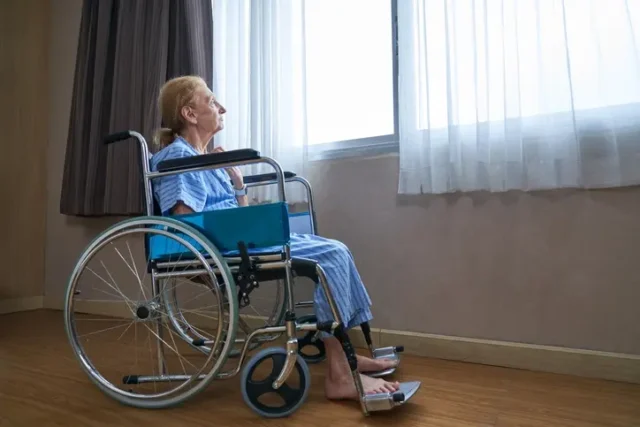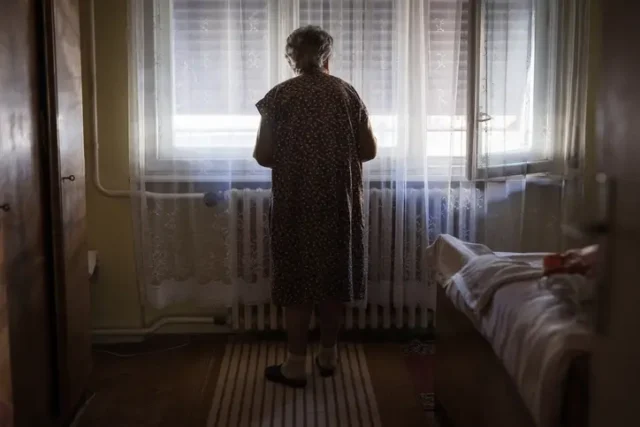Nursing homes are not allowed to verbally and physically abuse their residents, steal or manipulate their belongings, and neglect them during their stay in the facility. It’s important to draw the lines and figure out what things nursing homes are not allowed to do to protect your loved one from nursing home abuse.
While you’re looking for a nursing home, avoid places that often disrespect your resident rights. There are state and federal laws protecting you from unfair and harmful behavior that you should be aware of. Your loved one deserves adequate care and should not have to tolerate things like understaffing or getting denied medical treatment.
If your loved one suffered from actions nursing homes weren’t supposed to take, call an attorney as soon as possible. These acts of negligence are not normal, and may continue to escalate until you find legal representation.
Free Nursing Home Neglect Evaluation
Were you or your loved ones victims of abuse? Click here to speak with a nearby attorney for FREE about your Nursing Home Neglect claim.
or call (888)-927-3080
1. Discriminating Against Nursing Home Residents

Nursing homes can’t accept every applicant, but they also cannot discriminate against residents based on a protected class. Some examples of protected classes outlined by the Affordable Care Act include:
- Age
- Sex
- Race
- Religion
- Color of their skin
- Creed
- Disability
- National origin
A successful discrimination lawsuit may issue heavy consequences for the guilty parties involved. Not only will there be heavy fines paid to you and your loved one, they may lose accreditation and guilty staff may receive disciplinary action for their behavior.
Discrimination against residents violates their civil rights, which are protected by state and federal law. If you feel you or a loved one was treated differently due to discrimination, you may have a lawsuit in your hands.
2. Charging Unexpected Fees

When your loved one is first admitted, nursing homes cannot impose unexpected fees that weren’t already written in their contract. Residents should know, either in written or oral form, a nursing home’s free and paid services.
If a resident’s needs change over time, the nursing home should inform them of the changes before enacting further fees. If Medicare or Medicaid pays for your care, nursing homes shouldn’t charge you an application fee to sign up. When a nursing home charges unexpected fees, they’re violating their contract and may be liable for abuse.
3. Managing Residents’ Money Without Consent

Even if nursing home residents suffer from mental impairments, managing money without consent is a big thing nursing homes are not allowed to do. Even with consent, nursing homes cannot bar the owner from accessing their accounts and must produce quarterly financial statements.
When granted access to a resident’s accounts, nursing homes cannot merge the patient’s funds with their own. If a nursing home charges unexpected fees and manages money without your loved one’s consent, this behavior may constitute financial abuse.
If you suspect your loved one suffers from nursing home financial abuse, you need a lawyer immediately to gather the evidence. Without an attorney, you may be awarded less than what you deserve with a lackluster settlement offer.
4. Abusing or Neglecting Residents

Nursing home residents have the right to quality care that promotes “maintenance or enhancement of the quality of life” according to the state and federal law. Abusing or neglecting residents is not acceptable in a nursing home environment. This type of behavior does not promote quality care and is harmful to the residents involved.
Examples of nursing home abuse may be physical like punching or shoving a resident. Verbal abuse may also involve threats of violence, screaming, or underhanded manipulation. Emotional abuse is a subtle, but painful form of harm that can be as destructive as physical abuse if left unaddressed.
5. Forcing Medical Treatment

It is illegal for nursing homes to force medical treatment onto their residents if they refuse the care. They may refuse because they don’t want care from the nursing home’s dedicated practitioner. Residents may want care from their own doctor instead of an assigned physician.
Even if this decision harms the resident’s health, nursing homes cannot force them to take medication or accept treatment they don’t agree with. Nursing homes can only advise the patient on the consequences of their decision and can propose alternative forms of care that can solve the problem.
6. Denying Visitors

Nursing homes cannot deny people from visiting residents during reasonable times of the day. This is one of the things nursing homes are not allowed to do, and if this occurs on a frequent basis, this may be a sign of nursing home neglect.
Family members and friends reserve the right to visit their loved ones in a nursing home. There are also other parties that need to visit your loved one in order to promote quality care:
- Your loved one’s doctor
- Therapists
- Legal professionals
- Personal caregivers
- Financial advisors
7. Retaliating Against Resident Complaints

Nursing homes are not allowed to retaliate against a resident’s complaints for not granting basic care from other staff. Residents reserve the right to send complaints about a nursing home to government agencies focused on protecting their rights. Your state’s long-term care ombudsman is eager to take your loved one’s complaints.
Your nursing home cannot punish your loved one for making a complaint against them. They also cannot punish your loved one when they report malicious behavior against other residents in the same nursing home.
Retaliating against nursing home complaints creates a culture where residents cannot speak up against abuse they may see everyday. This culture needs to end, and it may require legal action to force a nursing home back in line.
8. Understaffing Their Nursing Home

Nursing homes have to adequately staff their facilities so they provide basic care for every resident living there. Federal public health law 42 CFR § 482.23 directly states what staffing requirements each nursing home should follow. Examples of such requirements include:
- Nurses are assigned to each resident to monitor and supervise their health condition on a daily basis.
- The facility should provide 24-hour nursing services supervised by a registered nurse.
- Each nurse requires adequate licensure depending on their role in the facility.
If a nursing home fails to follow these requirements or others listed in 42 CFR § 482.23, they may be guilty of understaffing, lacking the manpower to give adequate care to your loved one and others.
Find a Nursing Home Lawyer to Support You With LegalASAP
Finding out what nursing homes are not allowed to do will help you decide whether you need a lawyer. If a family or friend experienced the following, schedule a free meeting with an attorney so you know what’s next.
Don’t let nursing homes get away with abuse. Reaching out to an attorney in LegalASAP’s 500+ nationwide network simply starts with a call to 888-927-3080 or filling out an evaluation form below:
Jan Reburiano is a content writer and SEO specialist for law firms focusing on personal injury, disability, employment law, among other practices. He has written and edited numerous articles and created commercial spots for broadcasters that you can find in his LinkedIn. Jan currently lives in Los Angeles, California while writing for clients from around the United States.


